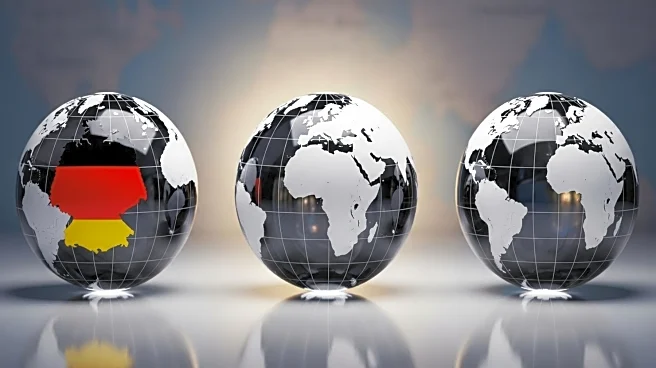What is the story about?
What's Happening?
Germany, France, and the United Kingdom are set to begin the process of reimposing United Nations sanctions on Iran due to its nuclear program. This action is part of the 'snapback' mechanism included in the 2015 Iran nuclear deal, which allows for the reimposition of sanctions if Iran violates its obligations. The process takes 30 days, during which Tehran is expected to engage in diplomatic negotiations to prevent the sanctions. Iran has expanded its nuclear program beyond the restrictions of the Joint Comprehensive Plan of Action (JCPOA) after the U.S. withdrew from the agreement during President Trump's first term. The International Atomic Energy Agency (IAEA) inspectors have returned to Iran, despite a ban on cooperation, to inspect facilities like the Bushehr nuclear power plant.
Why It's Important?
The reimposition of UN sanctions on Iran could have significant geopolitical implications, affecting international relations and stability in the Middle East. The sanctions aim to pressure Iran into compliance with the nuclear deal, potentially curbing its nuclear capabilities. This move could impact global oil markets and international diplomacy, as Iran is a major oil producer. The situation also highlights the challenges in enforcing international agreements and the role of diplomatic negotiations in resolving nuclear proliferation issues. The involvement of European countries underscores the importance of multilateral efforts in addressing global security concerns.
What's Next?
If Iran does not comply with the nuclear deal within the 30-day window, the snapback sanctions will be fully reimposed. This could lead to further diplomatic tensions and potential retaliatory actions from Iran, including limiting cooperation with the IAEA or withdrawing from the Nuclear Non-Proliferation Treaty. The international community, particularly the E3 countries and the U.S., will continue diplomatic efforts to negotiate a resolution. The situation may also influence U.S. foreign policy and its approach to nuclear non-proliferation, as well as impact regional security dynamics in the Middle East.
Beyond the Headlines
The return of IAEA inspectors to Iran, despite legislative barriers, indicates ongoing international efforts to monitor nuclear activities and ensure compliance with global non-proliferation norms. The situation raises ethical questions about the balance between national sovereignty and international security obligations. It also highlights the complexities of enforcing international agreements in the face of geopolitical conflicts and the role of international organizations like the IAEA in maintaining global security.
















